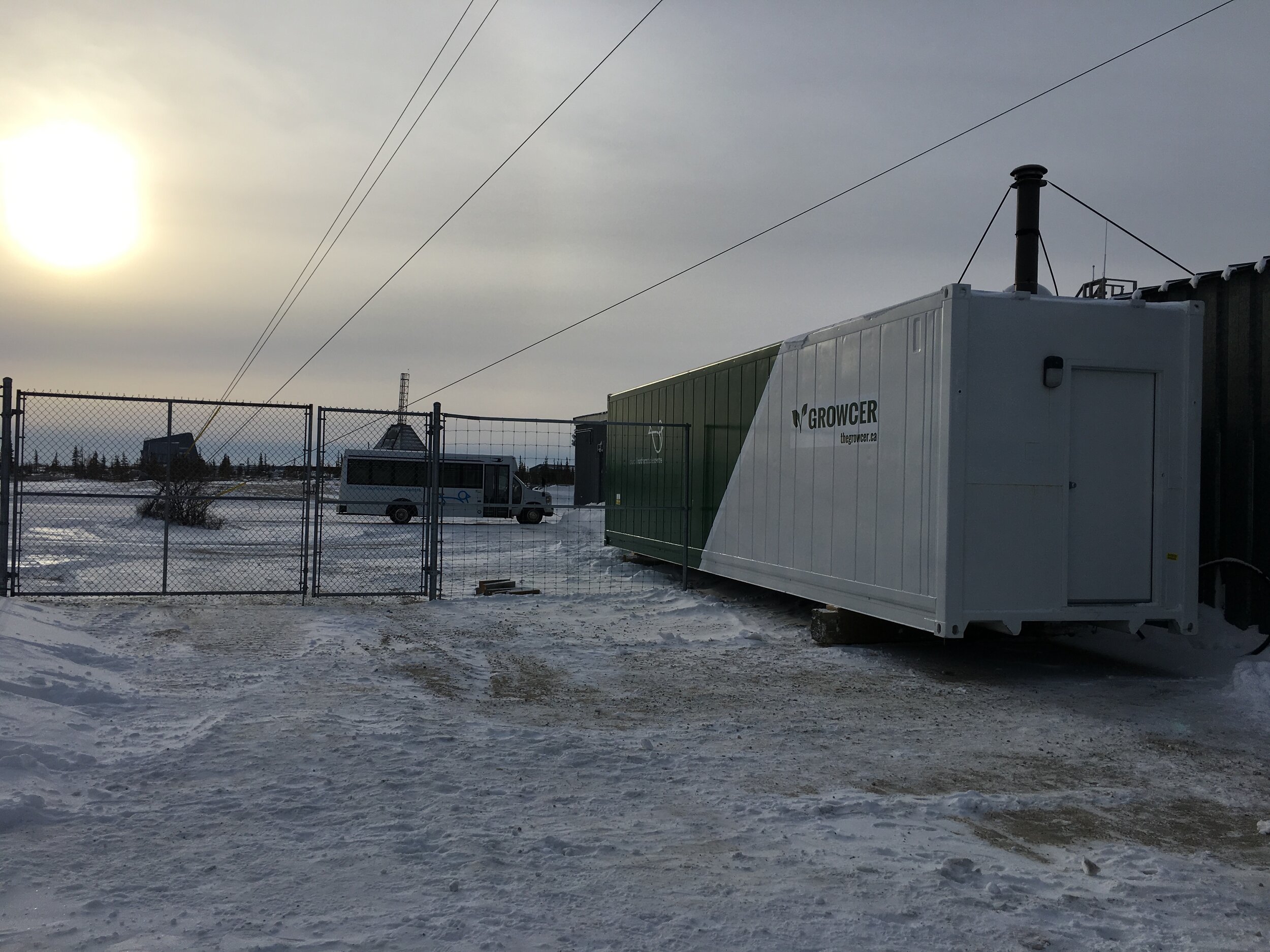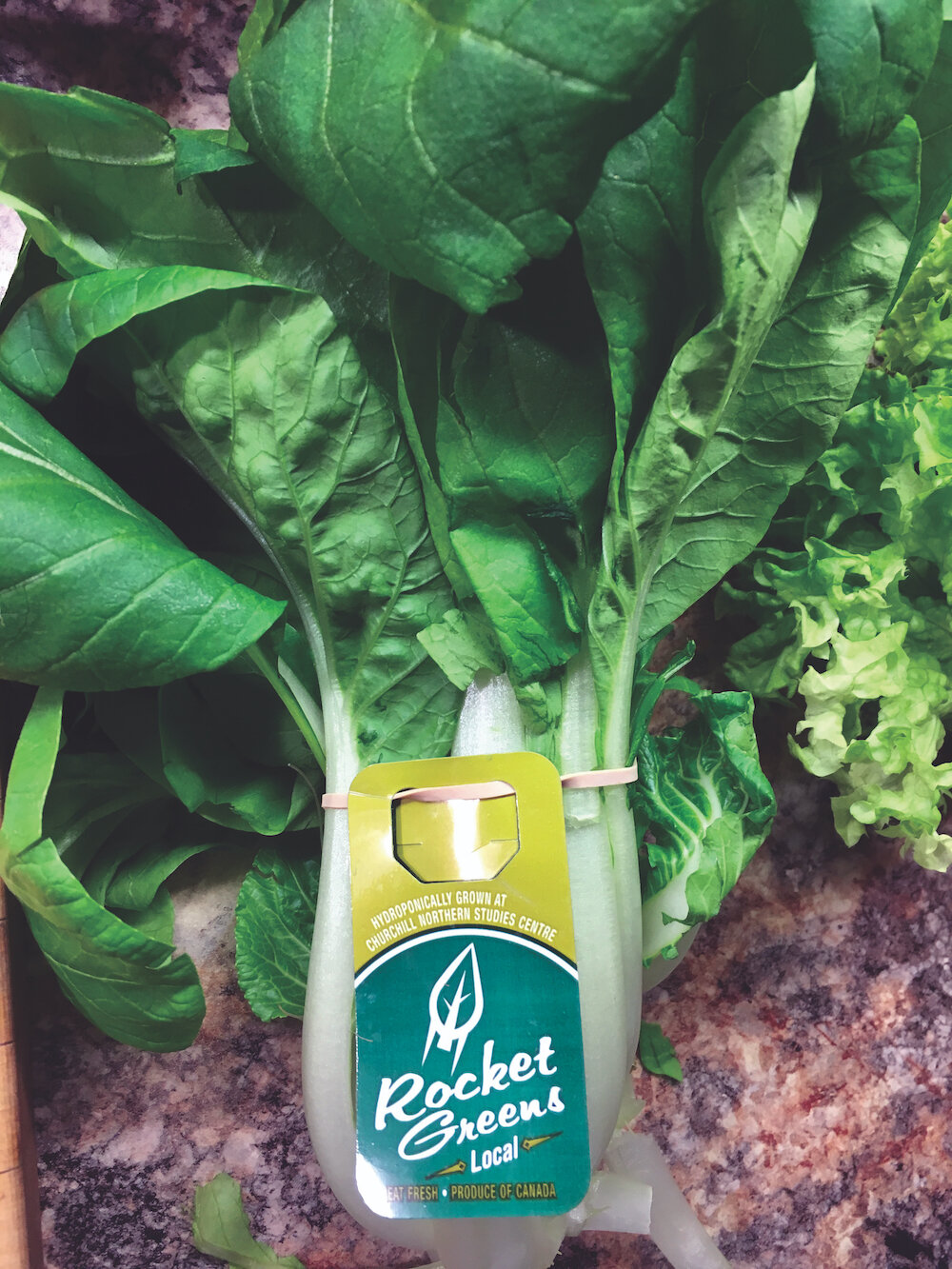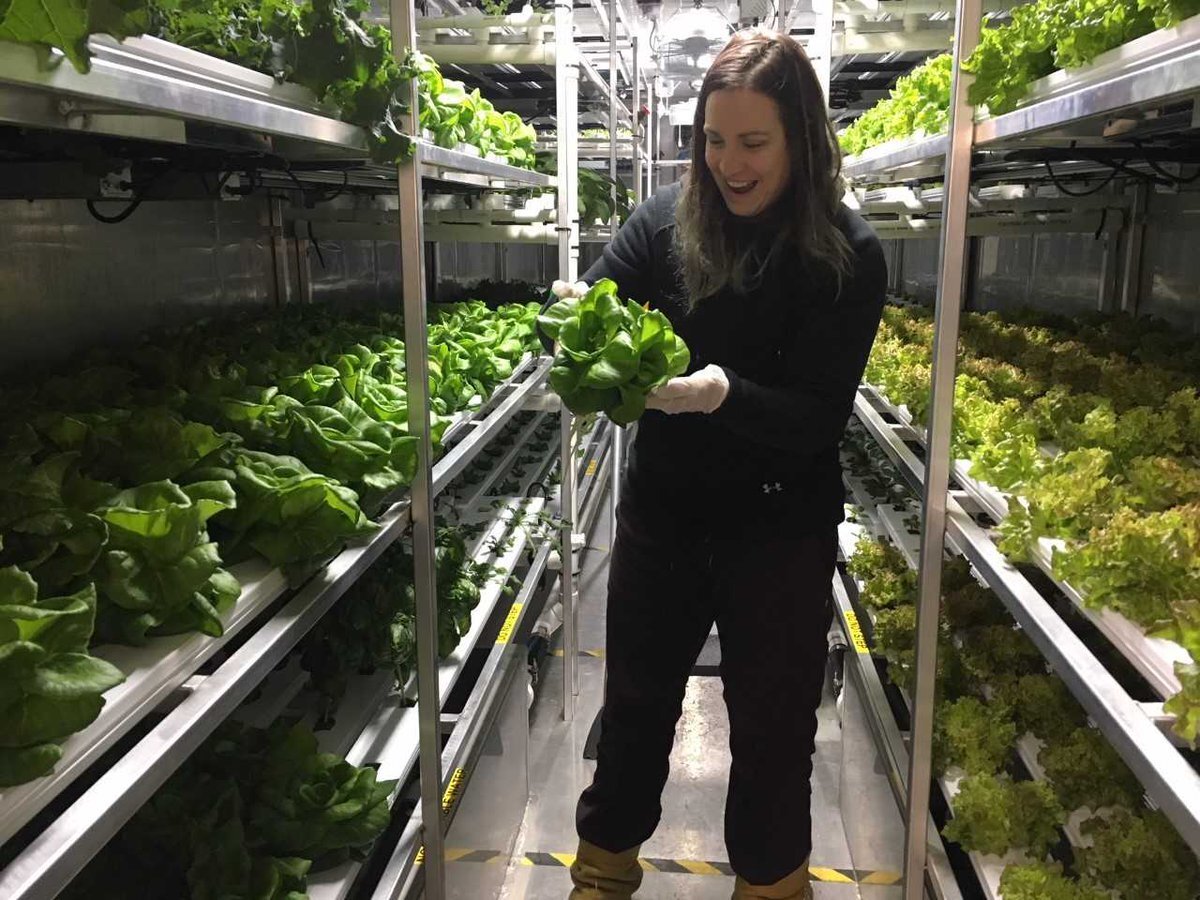Churchill: Sowing Seeds of Hope
Located in Churchill, Man., The Churchill Northern Studies Centre (CNSC) is a field station dedicated to subarctic research and education with projects looking into food security and northern energy opportunities, among others.
But when the region’s access to food became threatened, the centre found a way to extend a much-needed hand.
Project at a Glance
Installed in fall 2017 and located in Churchill, Manitoba.
Project goal: Build resilience into Churchill’s food system and expand the CNSC’s research of growing food and the sustainability of remote communities more broadly.
Distribution model: Produce grown at CNSC supplies two local grocery stores, the hospital and CNSC cafeteria and depending on the time of year – such as polar bear tourism season – extra restaurants and businesses. CNSC also runs a weekly produce subscription box under the brand Rocket Greens.
Impact: Locals gain access to minimally packaged, fresh, local produce at affordable prices and Churchill builds more self-sufficiency into its food supply.
Operator: The farm is operated by CNSC’s sustainability coordinator.
Challenge
In May 2017, the northern Manitoba community lost its only land link to resources after a spring storm washed out the rail line. The town’s inaccessibility caused the price of food to double overnight and forced the community to rely on expensive and inconsistent food shipments by air. Churchill residents told CBC News that it left some stranded, unable to afford the $1,000-plus flight to Winnipeg, while the cost of food “doubled if not tripled” in town.

The container farm made it onto the last chip of the season and arrived on Churchill’s shore in the fall of 2017.
In response, CNSC acted fast to restore some food security, tapping into the Churchill Region Economic Development Fund and partnering with The Growcer to bring a modular hydroponic farm on site. The farming module made it onto the last ship of the season and arrived on Churchill’s shores in the fall of 2017.
Solution
The 40-foot Growcer hydroponic farm grows leafy greens including different varieties of lettuce, spinach, kale, Asian greens, collard greens, and herbs. The farm recirculates water continuously and receives a top up of water every three weeks, so it is conservative in its water usage. For power, the farm is tied to the local electric grid.
Produce grown inside the CNSC hydroponic farm supplies two local grocery stores, the hospital cafeteria, and depending on the time of year – such as polar bear tourism season – extra restaurants and businesses.

CNSC also started a direct-to-consumer subscription box, called “Launch Box,” to sell its produce to members of the community. At $20 per week for a standard box with six types of produce or $10 per week for a mini box with three types of produce, the pricing is still lower than what locals expect from the grocery store.
The produce grown inside the farm is branded as “Rocket Greens,” an ode to CNSC’s history of being located on the site of the former Churchill Rocket Research Range. This history, paired with a fun fact shared by a CNSC post-doc that “rocket” is also a term used to describe arugula, contributed to the final name of Rocket Greens.
Carley Basler, the sustainability coordinator at CNSC and operator of their Growcer system, reflects on the success of the project.
“The beauty of the Rocket Greens and the fact that it’s so fresh, or essentially alive when we deliver it, is that [the greens] keep for a long time,” says Basler, explaining how food intended for the grocery store is more likely to age during its longer transit into town. “I bought broccoli two days ago and it’s yellow already.”
THREE YEARS LATER
Churchill Northern Studies Centre’s sustainability coordinator and Growcer’s CEO reflect on the past three years.
In September 2020, CNSC sold more than 40,000 units of produce to the community. Basler adds that more produce was actually grown, because in addition to selling, CNSC donates some of it to food banks and community groups.
Prior to operating the farm at CNSC, Basler’s growing experience was limited. She shares how there was a lot of “plant anxiety” in the early days where she felt the need to constantly check up on the plants, but this subsided over time.
“I moved past a lot of the [initial] plant anxiety and I take a lot more in stride now,” Basler says. She adds that her catchphrase is now “It’s just lettuce” as a reminder to keep things in perspective.
“Sometimes you get wrapped up in all the things that aren’t working right, harvests that aren’t as great as others, but at the end of the day I constantly remind myself when I’m in there, and the lights are on, and everything is green, that this is a super cool project. People that I know, who work and live around me, are eating food that we [at CNSC] grow.”
“At the end of the day I constantly remind myself when I’m in there, and the lights are on, and everything is green, that this is a super cool project.
People that I know, who work and live around me, are eating food that we grow.”



Results
In the first few months, up to 340 vegetables were sold in Churchill every week - increasing to 450 vegetables during tourism season.
In February 2018, Churchill was still able to grow produce despite temperatures of -42 C or -58 C with the windchill.
Over the past 3 years, more than 40,000 pieces of produce were sold out of the Churchill Northern Studies Centre.
Before Growcer, the price of leafy greens was $7.25 with government subsidies. Now greens are sold for $3.99!
HEAR FIRSTHAND HOW ROCKET GREENS WENT FROM 0 TO 40,000 LEAFY GREENS SOLD
In a live Q&A, Carley Basler, sustainability coordinator at The Churchill Northern Studies Centre (CNSC) and Corey Ellis, co-founder and CEO of The Growcer, chatted about:
Lessons learned in distribution
Crafting the Rocket Greens brand
Carley’s experience growing in The Growcer system
Adapting to seasonality
Watch the recording of their conversation and learn firsthand how the CNSC achieved their milestone of 40,000 Rocket Greens sold and lessons learned!

